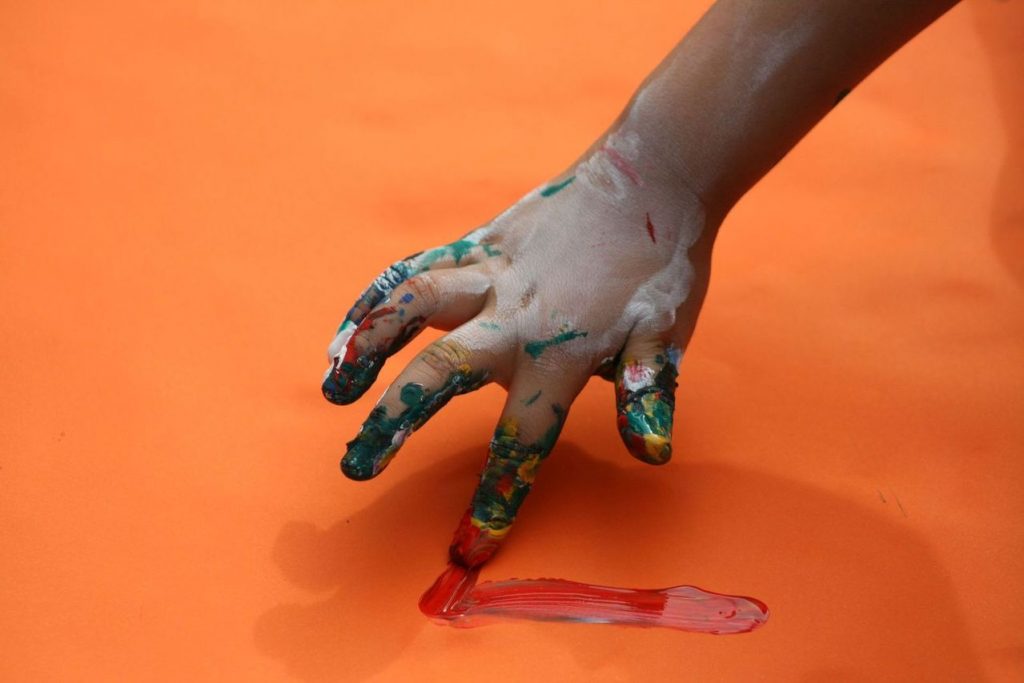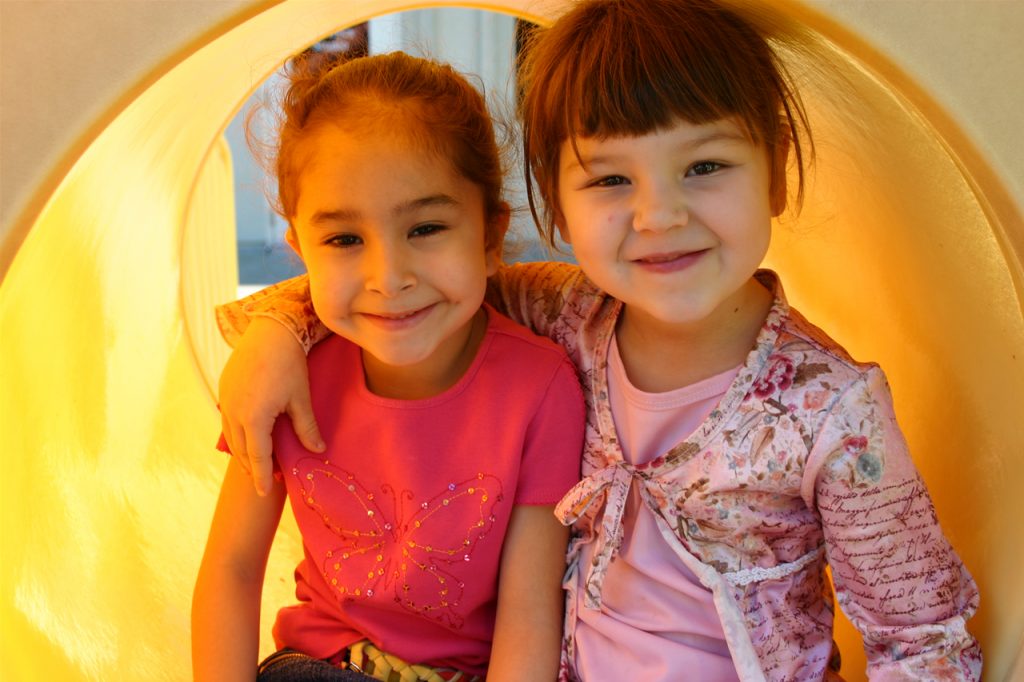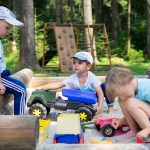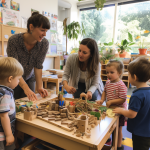Making sense of play by playing games learning new skills and experimenting by enjoying organised activities, help develop essential early skills.
There is a wide range of toys and equipment to suit all ages to support teaching, but effective planned activities are essential.

Playtime Is a Significant Learning Time For Children
Play patterns where the child repeats an action is the child’s way of embedding skills and knowledge for themselves, exploring new ideas and testing theories.
Toddlers love throwing things without thinking they are developing their hand-eye coordination and motor skills. It is crucial to support them with plenty of different sized balls and space to throw, kick and catch safely.
Painting will help engage all their senses and being able to manipulate materials are all great favourites. Offering shaving foam with paint mixed in or coloured sand, flour and glitter homemade play dough etc.

Toddlers have big feelings and no knowledge how to process them, so this is why you often get a sudden meltdown out of the blue. Give plenty of opportunities for children to express these feelings in a safe manner and talk to them about it helps them through it.
Answering no to everything children are learning self-determination and an essential part of how to be independent.
Transporting play often children love to fill bags and pushchairs or trolleys and transport things from one place to another. Plenty of opportunities to do so both indoors and outside will be a popular favourite. Even at the water table, moving water from one container to another is fun.
Games help children learn how to take turns and play nicely and develop their cooperation skills.

Most children are naturally imaginative and need little encouragement, just help to extend ideas and thoughts to take activities further.
Talking and singing should be important parts of a child’s day. Children often feel uninhibited to sing as they play feed their natural curiosity and play music in the background.



Leave a Reply